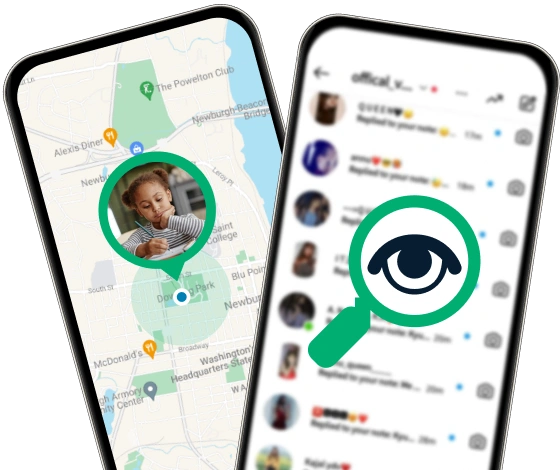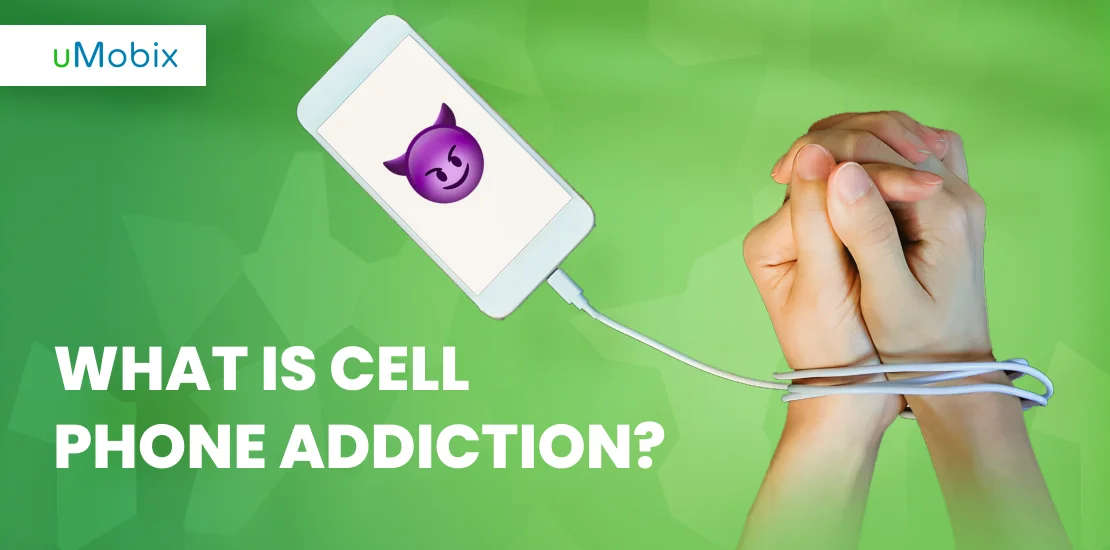Phone addiction has been prevalent recently, especially for young adults and adolescents. Most suffer from “Nomophobia” fear of being without a cell phone. The world is becoming a global village with many people connected via various social media apps. Information about everything and anything is easily accessible from anywhere now through cell phones. Cell phones have also become a testament of class, with many individuals seeking to secure the latest version of every device. Phone addiction has become a psychological concern today and has led to much research on cell phone addiction and its possible effects and means of averting it. The increasing rate of young ones owning mobile phones has made it difficult to cut down on this menace.
Signs and Symptoms of Smartphone Addiction
- A compulsive need to use a cell phone
- Inability to reduce the use of the phone
- Preoccupation with phone usage
- Cell phone becomes a sanctuary for escaping the ill feeling
- Cell phone use has led to issues on the job, such as concentration issues or lack of focus
- Increased dependency on smartphone
- Spending more time on mobiles than with physical individuals
- Inability to keep up conversations by getting easily distracted with the cell phone.
- Anger when there is little or no connectivity due to dow
- Tension when deprived of access to a phone
- Depression arising from loss of cell phone
- Irritability that arises when disturbed while using a cell phone
- Restlessness
Cell Phones Were Designed To Be Addictive
The world population (roughly three billion) has a smartphone, with many individuals unable to leave their phones for an extended period. The cell phone provider has designed phones to make them difficult to put down. The constant beeps from notifications of calls, messages, and calls and the accompanying pop-ups from multiple apps have made it addictive. The continuous updates on the phones with apps that allow you to share a lifestyle on the internet have also increased the addictive nature of the cell phone. The ability to set up schedules, alarms has also made it difficult to let go of the cell phone as many individuals are unable to do away with their device due to its attachment to their living.

Adverse Effects Of Phone Addiction
The excessive use of cell phone addiction cannot be overemphasized as it has led to reduced connections with direct humans and replacement with “digital persona” The effect can be explained under two headings, namely:
Physical effects
- Eye strain: the constant use of cell phones has led to increased pain and discomfort for the eye. It is a fact that continuous gazing at a cell phone for an extended period (Over 2hrs) can lead to burning and itching eyes, blurred vision, fatigue eyes, and digital eye strain, “which can lead to headaches.”
- Increased Illness: It is a fact that 1 in 6 mobile phones has fecal matter attached to them that could lead to illness. E. Coli bacteria, a known causative agent of fever, vomiting, and diarrhea, are also found on many phones. Also, phones are known to harbor MRSA which causes painful abscesses and could lead to life-threatening infections in the bones.
- Car accidents: The belief that one can efficiently multitask is a significant cause of car accidents. Driving often requires total concentration; therefore, compulsive addiction to phone usage can lead to loss of attention on the road, resulting in casualties. Research has shown that texting while driving is as dangerous as drunk driving. Thus, it is of utmost importance that one is deterred from cell phone addiction.
- Male infertility: Radiation from cell phones revealed in a preliminary study to lead to low sperm count, motility, and viability. This, in effect, is a significant concern. More so, sleeping close to your phone could lead to an issue and result in cancer.
Psychological effects
- Inability to Sleep: constant usage of phones has been noted to lead to sleep disorders and constant fatigue. Addiction to your phone can also make it difficult to fall asleep (insomnia). Bright light is also known to reduce sleep quality as the light emitted from the phone may activate the brain.
- Obsessive-Compulsive Disorder: OCD is the obsession with a particular thing or way of doing something. When it comes to cell phone addiction, someone with OCD is often compelled to feel the burning desire to be with her device over and over again.
- Relationship issues: The compulsion to engage in online conversations might lead to the suffering of offline relationships. Families and friends might feel left out as you would rather stay glued to your device than hold meaningful real-life conversations, which might lead to friends and family feeling estranged.
- Anxiousness: Whenever there is a downtime on network or connectivity, most individuals suffering from cell phone addiction might find it difficult to contain their emotions leading to exacerbated anxiety.
GABA Dysfunction
GABA is referred to as Gamma-aminobutyric acid. It is a naturally occurring amino acid that serves as a neurotransmitter in the brain. Compulsive phone usage has been shown to result in the build-up of reward circuits in the brain. The GABA is primarily affected as it is noted to produce inhibitory neurotransmitters that are responsible for the release of hormones that calms and give euphoria while also contributing significantly to the control of fear and anxiety. A notable fact about GABA is that it is responsible for enforcing addictions due to its reinforcement of addictive behaviors. Heavy phone usage has been associated with an upsetting ratio of GABA when compared to other neurotransmitters. The research was further accentuated when teen subjects with little interaction with cell phones showed a non-addiction level.
The addiction to a cell phone would lead to anxiety associated with other everyday habits. When the production of GABA is high, the brain tends to resort to the activity giving the hormonal imbalance and leading to a constant desire to be with the phone.
Treatment of Phone Addiction
The issue of phone addiction is on the rise, and many psychologists are seeking the best way to beat this pervasive pandemic. There has been the development of some specialized detox Centres that could help patients break free of the addiction. Below are some of the treatment options deployed to treat cell phone addiction.
Cognitive-behavioral therapy
Cognitive-behavioral therapy aims at helping patients understand and change the behavioral patterns that negatively affect their behavior and emotions.In the case of cell phone addiction, the treatment seeks to evaluate the underlying conditions that propel the individual to become compulsive about cell phones and aims to correct this by replacing the need to embrace digital presence with physical one such as better communication with families and friends.
Group therapy
Like many addictions, it is always better when you have someone on the same recovering path to share your ordeals with. Families and friends, though they might be supportive, might not be able to understand what it takes to recover from an addiction fully. Therefore, relating with individuals who suffer from the same might help you overcome it better.
Marriage or couples counseling
Cell phone addiction has been shown to lead to discontent between spouses. The less cell phone inclined person might feel left out and disconnected from their spouse. Therefore, engaging in marriage counseling would help couples understand each other and communicate better.
Group support
You may also join websites that offer group recovery options to people suffering from addiction. Entering such programs could give a fresh perspective and help improve your general mindset.
Psychotherapy
This is often referred to as “talk therapy” and involves the helping of addicted persons out of their compulsion by assisting them in eliminating troubling systems. This would enable the person to function better and interact seamlessly with people. Once the addicted person is well cured, they would feel better connected to people around them.
Motivational interviewing
This type of behavioral therapy was developed partly by William R. Miller and Stephen Rollnick, renowned clinical psychologists. This approach aims to adopt a client-centered method to ignite positive behavioral change and enhance the clients’ ability to explore their ambivalence. You need to understand the patient’s pain and empower the patient to resolve the underlying issues and improve significantly.
Medication-assisted treatment
This treatment option tends to help control the constant urge at the onset of the recovery. It is stopped when the prevalent conditions have been addressed to prevent recurring drug addiction. This is why this option is used as a last resort and only adopted in extreme cases.
Don’t Let Your Phone Addiction Win
Smartphones, since their prevalence in the 21st century and constantly evolving, have many excellent benefits. It can, however, become a dangerous tool, especially for teenagers who tend to become compulsive with any substance, be it technological or not. There is still a divergence about the extent of dangers associated with cell phone addiction. Nonetheless, research has continued to link specific health issues with the usage of cell phones; thus, one must remain proactive in tackling these issues as they arise.
You must take steps to correct the over-dependence on cell phones and try as much as possible to seek a range of activities that keeps you away from your cell phone. Taking a conscious effort to alienate one from a cell phone could be a good starting point as you would become better aware of your compulsive acts and seek to correct them by embarking on Phone-detoxify, bringing as much attention as possible to the situation and seeking to recover.
Conclusion
The world has evolved into a single global village, and the advent of smartphones has further made the world smaller. It has become a haven for seeking information and communicating seamlessly with everyone. Despite its implied benefits, statistics and research has revealed that many individuals are suffering from an over-dependence on their cell phone which has brought the attention of the world to the damage this could cause.
Therefore, it is of utmost importance that cursory attention corrects the burgeoning addiction and nip the growing mental illness in the bud by understanding the consequences and the possible treatments to avert the issue.

Latest posts
- 10 Best Apps for Parents to Monitor Social Media: 2026 Guide
- Complete List of Keywords to Block for Parental Control
- Does Telegram Notify Screenshots? Everything About Screenshot Detection
- How to Find Someone’s Deleted Instagram Posts: Complete Guide
- Family Tracking App by uMobix: Keep Loved Ones Safe




